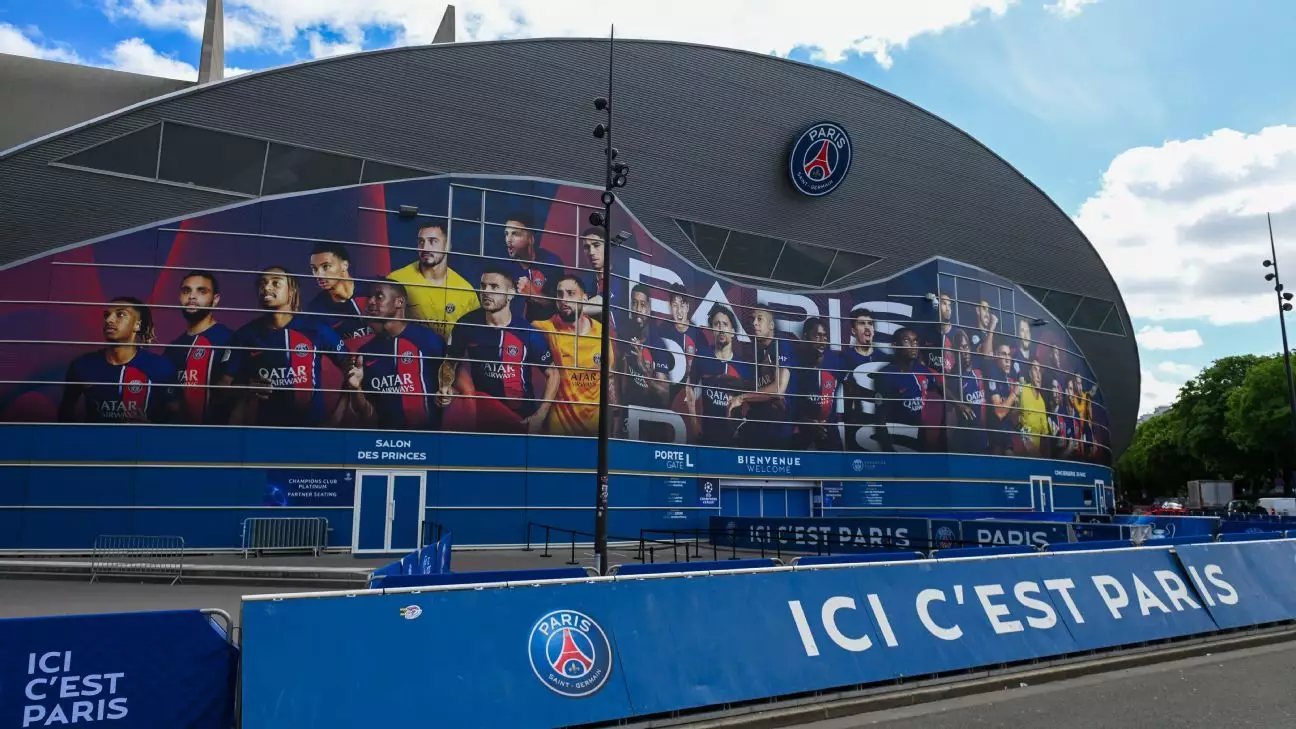In the realm of international finance and sports, Qatar has established itself as a formidable player through its strategic investments, particularly in France. However, recent reports suggest that Qatar’s appetite for investment in the French market is dwindling, signaling a pivotal shift in the nation’s financial strategy. Over the past year, notable entities such as the Qatar Investment Authority (QIA) and Qatar Sports Investments (QSI), the majority stake holders of Paris Saint-Germain (PSG), have indicated a slowdown in their investment activities in France. This article delves into the underlying factors contributing to this development and assesses the implications for both Qatari investments and the French economic landscape.
One of the most significant aspects of this cooling interest is the ongoing investigation involving PSG President Nasser Al-Khelaifi. Although the inquiry is not directly related to his administration at the football club, it has cast a shadow over QSI’s operations in France. Al-Khelaifi faces preliminary charges related to a broader corruption probe involving a French businessman. Despite his firm denial of any wrongdoing, the political environment and media scrutiny surrounding him have led to a sense of unease among Qatari officials. A source close to Al-Khelaifi emphasized that the charges are unfounded, yet the media frenzy surrounding his name seems to complicate the relationship between Qatar and France.
The perception of unfair treatment by local authorities has reportedly frustrated Qatari stakeholders. This sentiment appears to be influencing their strategic decisions, as they grow increasingly wary of how their interests are represented in France. Such friction raises questions about the sustainability of Qatari investments, particularly in industries perceived to be vulnerable to political and media pressures.
Evaluating the Portfolio: An Economic Reassessment
The QIA, which boasts an impressive €500 billion in assets, has historically viewed France as a key market for investment. From owning luxurious properties to major hotel chains in Paris, Qatar’s financial imprint has been significant. However, recent behavior suggests that the QIA is reassessing its commitments. Reports indicate that the organization has started divesting from various sectors within its French portfolio. This retreat indicates a broader recalibration of Qatari investment priorities, as they may be seeking more stable environments to allocate their resources.
QSI’s acquisition of PSG in 2011 transformed the club into a powerhouse, attracting high-profile players like Neymar and Lionel Messi, and resulting in numerous domestic titles. However, it is telling that, despite these high expenditures, the club’s overarching aspiration—winning the UEFA Champions League—remains unfulfilled. This disappointing return on investment could further fuel the Qatari rationale for withdrawing from France, as it reevaluates its goals in line with its aspirations for sports dominance.
Interestingly, rather than a unilateral withdrawal, there seems to be a trend toward diversification of investments beyond French borders. The recent partnership between QSI and American investment fund Arctos, which includes NBA star Kevin Durant, reflects a shift toward attracting international investors and creating a broader financial base for PSG. Additionally, Qatari interests are now reportedly directing resources towards clubs outside of France, such as the acquisition of a minority stake in Portuguese club Braga. This strategic pivot illustrates a proactive approach that aims to mitigate risk by not only severing dependence on a single market but also tapping into a wider range of opportunities.
Furthermore, Qatari media holdings, such as beIN Media Group, have engaged in investment discussions with Saudi Arabia, indicating another significant geographical shift while reducing media expenditures in France. This dual strategy of negotiating international partnerships while tightening local spends shows a methodical approach to evolving business dynamics in a rapidly shifting global investment climate.
The cooling of Qatari investments in France comes amid a complex interplay of external pressures and internal recalibrations. Navigating legal challenges, media bias, and a pursuit of diversified investment opportunities illustrates Qatar’s adaptive strategies within a turbulent landscape. As they reassess their commitments to France, the long-term implications for both Qatari interests and the French economy remain to be seen. It is evident that while the attraction to France has waned, Qatar’s pursuit of global opportunities has only just begun, suggesting an evolving narrative in international investment that could redefine traditional power structures in the world of finance and sports.

